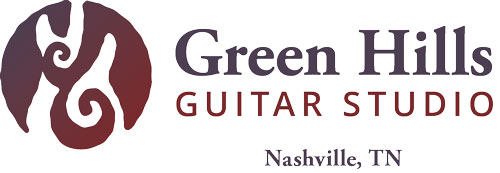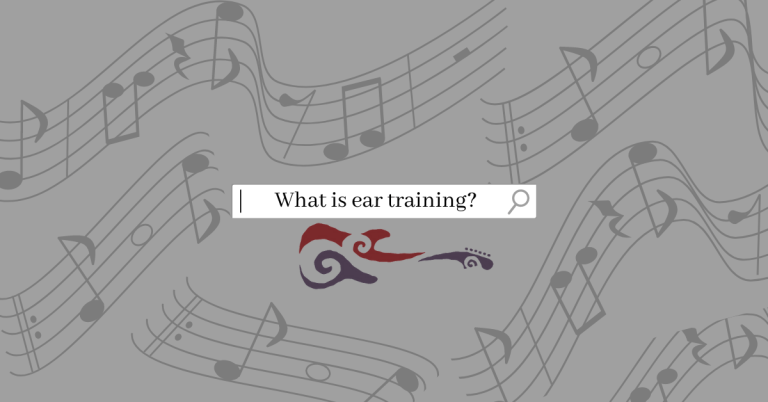Demystifying the Nashville Number System: A Musician’s Guide
Whether you’re an aspiring musician, a seasoned performer, or a curious music enthusiast, understanding the Nashville Number System can open up a world of possibilities in music theory and collaboration.
Developed in the vibrant music scene of Nashville, Tennessee, this innovative system has become an essential tool for musicians across genres. In this comprehensive guide, we’ll break down the Nashville Number System, its benefits, and how you can use it to enhance your musical journey.
What is the Nashville Number System?
The Nashville Number System is a versatile method of representing chord progressions and harmonic relationships using numbers instead of traditional chord names. It’s a favorite among session musicians, songwriters, and music producers due to its flexibility and efficiency in communicating musical ideas. Initially designed for the country and gospel genres, the Nashville Number System has found its way into various musical styles, from pop and rock to jazz.
Understanding the Basics
In the Nashville Number System, each major key is represented by a number based on its position within the diatonic scale. For instance, in the key of C major, the scale degrees would be assigned as follows:
- 1 – C
- 2 – D
- 3 – E
- 4 – F
- 5 – G
- 6 – A
- 7 – B
Using these numbers, chord progressions are represented as sequences of numbers. For example, a common chord progression in the key of C major – C, G, Am, F – would be notated as follows: 1, 5, 6-, 4
The Nashville Number System and Diatonic Harmony: Unveiling the Connection
At the heart of the Nashville Number System lies a profound connection to diatonic harmony, the foundation upon which much of Western music theory is built. Understanding this relationship can provide a deeper appreciation for music theory and its practical applications in composition, improvisation, and collaboration.
Diatonic Harmony: The Building Blocks of Music
Diatonic harmony refers to the harmonies and chords derived from the diatonic scale of a given key. This scale consists of seven unique notes, each representing a degree of the scale. As we delve into the Nashville Number System, it becomes evident that its very structure reflects diatonic harmony.
Harmonic Progressions in the Nashville Number System
In this system, chord progressions are represented by numbers corresponding to a key’s diatonic scale degrees. This alignment beautifully mirrors the natural progression of harmonies within the diatonic scale. Let’s take a closer look at how this works:
- Root Chord (1): The tonic chord, represented by the number 1, is the starting point of the diatonic scale. This chord serves as the home base in diatonic harmony and provides a sense of resolution.
- Dominant Chord (5): The dominant chord is represented by the number 5. It creates tension and a strong desire to resolve back to the tonic, much like it does in traditional music theory.
- Subdominant Chord (4): The subdominant chord, represented by the number 4, offers a subtle shift in tonal color. It’s an essential chord in diatonic harmony, often providing contrast and preparing the listener for harmonic changes.
- Relative Minor Chord (6): The relative minor chord, represented by the number 6, introduces a melancholic touch. In diatonic harmony, the 6 chord provides emotional depth and variation, serving as a common choice for modulation.
By mapping chord progressions onto the diatonic scale through the Nashville Number System, musicians understand how chords relate to one another within a key. This insight is invaluable for composition and improvisation, allowing musicians to make informed harmonic choices that resonate with listeners.
Benefits of the Nashville Number System
- Transposition Made Easy: One of the most significant advantages of this system is its simplicity in transposing songs. Once you understand the system, you can easily transpose a song into a different key by applying the same numeric relationships.
- Collaboration and Communication: The Nashville Number System is a universal language for musicians, making it an excellent tool for collaboration. Musicians can quickly understand and adapt to chord progressions, even if they need to become more familiar with the specific key or style.
- Efficient Songwriting: Songwriters often find the Nashville Number System is invaluable for writing new songs. It allows them to experiment with chord progressions and explore various harmonic possibilities effortlessly.
- Improvisation: Musicians who want to improve their improvisational skills can benefit from the Nashville Number System. It helps them recognize the underlying chord changes and make informed musical decisions.
How to Use the Nashville Number System
To effectively use the Nashville Number System, follow these steps:
- Select a Key: Start by determining the song’s key or the section you’re working on.
- Assign Numbers: Assign the appropriate numbers to the diatonic scale degrees of the chosen key.
- Build Chord Progressions: Construct chord progressions using the assigned numbers. Experiment with different progressions to create a unique musical feel.
- Transposition: If needed, transpose the chord progression to a different key using the same numeric relationships.
- Practice and Apply: Practice playing the chord progressions on your instrument and apply them to songs you’re working on. You’ll find it easier to adapt the Nashville Number System to your musical endeavors as you become more comfortable.
Example Chord Progressions Using the Nashville Number System
The beauty of the Nashville Number System lies in its versatility. Using the same numeric relationships, you can easily transpose these progressions to other keys. These examples (all in the key of C) glimpse the system’s creative potential. Mastering it gives you a powerful tool for crafting captivating chord progressions across various musical genres.
- Classic Rock Progression: 1, 4, 6, 4 (C, F, Am, G, F)
- Pop Ballad Progression: 6-, 4, 5, 1, 5 (Am, F, C, G)
- 50s Doo-Wop Progression: 1, 6-, 4, 5 (C, Am, F, G)
- Folksie Progression: 1, 3-, 4, 5 (C, Em, F, G)
- Jazz Progression: 2-, 5, 1 (Dm7, G7, Cmaj7)
- Standard Progression: 4, 6-, 2-, 5 (F, Am, Dm, G)
- Pop Progression: 1, 4, 6-, 5 (C, F, Am, G)
- Modal Progression: 3-, 6-, 2-, 5 (Em, Am, Dm, G)
- Uplifting Progression: 1, 5, 6-, 3- (C, G, Am, Em)
- Pachalbel’s Canon Progression: 4, 1, 5, 6- (F, C, G, Am)
The Coda
The Nashville Number System is a game-changer for musicians, offering a practical and efficient way to communicate chord progressions, experiment with harmonies, and collaborate seamlessly. By embracing this versatile system, you’ll better understand music theory and open new avenues for creative expression.
Whether you’re a songwriter, performer, or music enthusiast, mastering this way of thinking about harmony will enhance your musical journey. So, take the leap, explore the endless possibilities, and reach out to Green Hills Guitar Studio for a transformative learning experience.
Contact Green Hills Guitar Studio for Expert Guidance
Ready to dive into the world of music theory? Whether you’re a beginner looking to grasp the basics or an experienced musician seeking advanced techniques, Green Hills Guitar Studio is here to help. Our experienced instructors offer comprehensive online and in-person lessons tailored to your skill level and musical goals.
With our expert guidance, you’ll unlock the full potential and enhance your musical abilities. Take advantage of this incredible opportunity to elevate your music theory knowledge and collaboration skills. Contact Green Hills Guitar Studio today to schedule your first lesson and embark on a rewarding musical journey.






